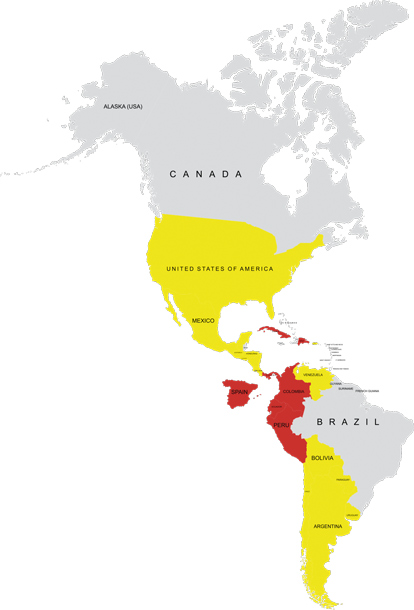Katie Jacoby explores the connotations and usages of coger
Relax. It’s not what you think. Despite what you learned during your study abroad in Argentina, your mission trip in Guatemala, or your backpacking jaunt in Mexico, coger is as squeaky-clean as could be in Colombia (and several other countries). Don’t waste your time trying to offend anyone with it or register cool points by shocking; rack up points instead by learning to wield it deftly, recognising its endless usefulness. Just remember that said usefulness becomes iffy when you cross borders. See above for a list that illustrates where to use coger and where to opt for other verbs (most commonly tomar and agarrar).
Colombia took a genteel cue from Spain and never got on the bandwagon with many other countries in Latin America where coger has become off-colour. Why tarnish a word that’s so all-purpose? Here are some of the most common meanings and uses for coger in Colombia.
Related: My favourite Spanish words
| It is worth being aware that because of the nature of slang and language, these kinds of rules are always fluctuating. But beware of coger in Mexico, Argentina, Chile, Uruguay, Paraguay, Bolivia, Venezuela, El Salvador, Guatemala, Honduras, Nicaragua, Costa Rica and the USA. It’s a synonym for the F-word in the sexual sense in these countries, so it’s best avoided in most scenarios. You don’t need to worry about coger in Colombia, Ecuador, Peru, Cuba, the Dominican Republic, Puerto Rico, Panama, and Spain. |
Uses:
To take, grab, or seize (similar to tomar and agarrar)
La mamá cogió al niño del brazo – The mum grabbed the boy’s arm
Los enamorados van cogidos de la mano – The two lovebirds walk around hand in hand
To pick up (recoger) (Not so much with the idea that you’ve dropped something and then bend over to pick it back up, but rather that you simply take it)
Coge ese vaso del suelo – Pick that glass up off the floor
Cogió las llaves y se las dio a ella – He picked up the keys and gave them to her
To catch a criminal, ball, or animal (alcanzar, atrapar)
¡Cógelo! (yelled out while chasing a thief down a street) – Catch him!
To catch, discover, or surprise (descubrir, pillar, sorprender)
Coger a alguien con las manos en la masa – To catch someone with their hands in the dough, i.e., to catch someone red-handed
Nos está cogiendo la tarde – It’s getting late (The afternoon is “catching” us)
Nos cogió un aguacero – We got caught in the rain
To catch or take a bus or taxi (tomar, agarrar)
Voy a coger un taxi para ir al aeropuerto – I’m going to catch a taxi to get to the airport
To take or get on a street or highway
Cojamos la autopista y después hay que coger la carrera 51 – Let’s get on the highway and then we’ll have to get on 51st street
To catch or get a cold, sickness, or sleepiness
Me cogió un sueño pero tenaz (very Colombian!) – I got extremely tired
To pick up a habit, rhythm, affection, experience, or get the hang of something
Con el tiempo le cogí cariño – I grew fond of him over time
Vas cogiendo el ritmo cada vez más – You’re getting the rhythm more and more
Me costó trabajo al principio, pero ya le cogí el tiro al computador – It was confusing at first, but I finally figured out how to work the computer. (Cogerle el tiro a algo is a very Colombian way of saying to get the hang of something.)
To get or grasp (captar, entender, pillar, cachar [en Chile] )
¿Sí cogiste la idea? – So, you’ve got the idea?
Did I miss any? Although coger is not quite as multi-purpose as it is in Spain, where you almost can’t imagine them forming a sentence without it, it is still very, very useful in Colombia and never offensive.
Katie Jacoby is a Spanish-English translator and has been in Colombia for 3 years. Feel free to leave her a comment or ideas for future columns on her language website, vocabat. com.






